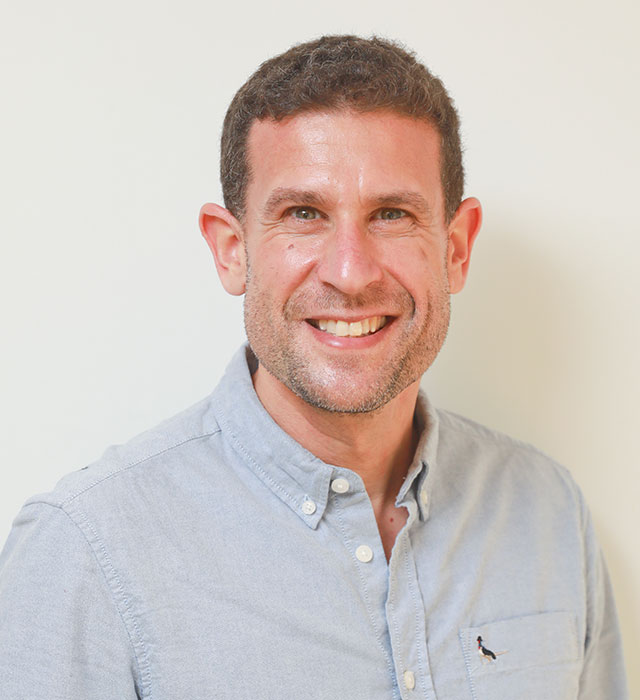“Working as the finance director of an educational organization felt like a marriage between two of the things that I know well,” he said. “I think my unique added value is that I understand the meaning behind the numbers. When I look at an Excel or I look at a budget, I don’t just see the numbers — I see the program itself. I can appreciate the true cost of making an educational program successful.”
Connecting all staff to the mission
After a decade with Young Judaea, developing and running educational and experiential Israel programs, Mitchell switched gears, enrolled in Ben-Gurion University of the Negev’s inaugural class of the Mandel Social Leadership MBA Program, and shifted to the financial side of running a nonprofit. Upon graduation, he became the finance manager for MAOZ, an organization promoting social change in Israel, and then spent five years as an independent financial consultant for more than 50 nonprofits in Israel.
Now, in addition to serving as senior director of finance and administration, Mitchell is also part of M²’s Senior Educators Cohort, and is considering how to apply the leadership and organizational theories from the program to his own work at M² as well as toward potentially impacting the nonprofit field at large. Mitchell is interested in helping organizations ensure all employees feel connected to the mission, regardless of their job title. “It’s just as important for the person sitting at the front desk and answering the phone to feel connected to the organization’s mission, as it is for the public-facing leaders,” he said.
This can be as simple as taking administrative staff to the field to understand how their day-to-day work is part of a bigger picture. For example, someone handling enrollment and finances for a Jewish summer camp is going to be much more connected after visiting the camp and seeing the kids having the time of their lives. Witnessing the camp in action helps illustrate how an employee’s administrative work is an essential part of running the entire organization. “Think about how much more impact an organization can have when everyone, at every level of the organization, is passionate about a shared mission. While this may seem so obvious, it does not happen enough,” Mitchell said.
The benefits of good benefits
Today, it’s unique for a finance director to be so connected to the mission and vision of a nonprofit, and that is part of what helps Mitchell understand employees’ needs. To that end, one of Mitchell’s first orders of business was to find ways to lower healthcare costs for M² employees in the United States by locating better insurance providers.
“We need to work on attracting the best people to the world of Jewish education, and a huge part of that is offering good benefits,” he said. This can be challenging for smaller organizations, because they have difficulty obtaining good deals from insurance companies compared to larger organizations, who have more bargaining power. That means someone might be more likely to work at a large organization with many employees, even if they could get the same salary at a small organization, because the difference in benefits may be drastic. After much research, Mitchell was able to lower healthcare costs dramatically, motivating additional US-based employees to enroll.
“We need to make sure that smaller, grassroots organizations are still able to get access to benefits that enable employees to support themselves and their families,” said Mitchell. And as someone who has handled financial matters for dozens of nonprofits, Mitchell knows that the most important part of a nonprofit is the people.
“These are good people, working for good causes, who are trying to change the world,” said Mitchell.
